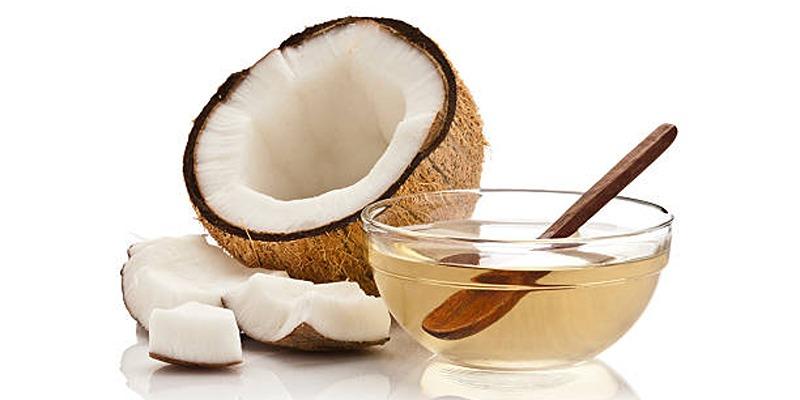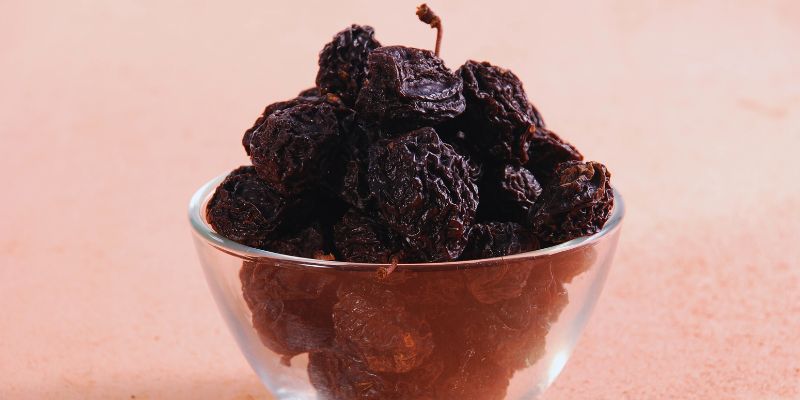The Truth About Coconut Oil: Health Benefits and Common Myths
Advertisement
Industrial production of coconut oil has resulted in its massive popularity worldwide since it has found its way into households through culinary uses, cosmetic and wellness practices. People worldwide have widely adopted this product due to its extensive range of uses and many reported advantages. People want to know what distinguishes this tropical gem from other products and the best methods for its use.
What is Coconut Oil?
 People use coconut oil extensively for meals and it functions as a primary component in personal skin care and hair care products along with serving as a traditional treatment against certain medical conditions. People in tropical areas have relied on this multi-purpose oil due to its taste-delighting qualities and extensive healing properties for generations. People across the globe currently use coconut oil for cooking and skincare purposes while also employing it for frying foods and skin moisturization.
People use coconut oil extensively for meals and it functions as a primary component in personal skin care and hair care products along with serving as a traditional treatment against certain medical conditions. People in tropical areas have relied on this multi-purpose oil due to its taste-delighting qualities and extensive healing properties for generations. People across the globe currently use coconut oil for cooking and skincare purposes while also employing it for frying foods and skin moisturization.
Why is Coconut Oil So Popular?
People have been utilizing coconut oil throughout numerous centuries because of its multiple health benefits. The diverse health advantages of this oil have made it into a required ingredient for both cooking and personal care routines throughout the world. People commonly refer to it as a "superfood" because MCTs found inside rapidly convert into energy. People use this natural product as a personal care essential due to its dual antibacterial and antifungal properties.
Types of Coconut Oil
There are several types of coconut oil available, each serving different purposes. Understanding these variations can help you choose the right one for your needs.
1. Virgin Coconut Oil
Virgin coconut oil is extracted without chemicals or high heat, keeping its natural aroma, flavor, and nutrients. It's ideal for skin care, cooking, and health products due to its purity.
2. Refined Coconut Oil
Refined coconut oil is processed to remove impurities, giving it a neutral taste and scent. With a higher smoke point, it’s great for high-heat cooking and is often used in commercial food production.
3. Fractionated Coconut Oil
This type stays liquid at all temperatures and is commonly used in cosmetics and therapy. It's lightweight, absorbs quickly, and is popular for massage and carrier oils in aromatherapy.
Health Benefits of Coconut Oil
Coconut oil offers a variety of health advantages, making it a versatile and valuable addition to wellness routines.
1. Supports Heart Health
Coconut oil contains medium-chain triglycerides (MCTs), which are known to increase good cholesterol (HDL). However, its high saturated fat content raises concerns about its long-term impact on heart health. Moderation is key. Some studies suggest that coconut oil may help reduce inflammation and improve overall cardiovascular health, but it should be consumed as part of a balanced diet.
2. Aids in Weight Management
Some studies suggest that MCTs in coconut oil may help increase metabolism and promote fat burning. While it is not a magic weight-loss solution, incorporating it into a balanced diet may be beneficial. MCTs are rapidly absorbed by the body and used for energy instead of being stored as fat, making them a preferred fat source for those following ketogenic diets.
3. Boosts Brain Function
MCTs (medium-chain triglycerides) found in coconut oil are rapidly converted into energy, potentially benefiting brain health. Research indicates they may support cognitive function in older adults, sparking claims that coconut oil could help prevent neurodegenerative diseases. However, further studies are needed to fully validate these potential benefits.
4. Improves Skin and Hair Health
Coconut oil is a natural moisturizer that helps with dry skin, eczema, and even minor wounds. It is also a popular choice for hair conditioning and scalp nourishment. The antibacterial and antifungal properties make it a great remedy for dandruff, and applying it to hair can improve shine and reduce frizz.
5. Supports Digestion
Coconut oil’s antibacterial properties can support a healthy gut by fighting harmful bacteria and enhancing digestion. Additionally, it may aid in the absorption of fat-soluble vitamins like A, D, E, and K, contributing to overall well-being.
6. Enhances Oral Health
Oil pulling, a traditional practice where coconut oil is swished in the mouth for several minutes, is believed to improve oral hygiene by reducing bacteria and plaque. Some claim it helps whiten teeth and freshen breath naturally.
Common Myths About Coconut Oil
Coconut oil has gained immense popularity, but along with its rise, several misconceptions and myths have emerged that require closer examination.
Myth 1: Coconut Oil is a Superfood
While coconut oil has many benefits, it is not a miracle cure for all health issues. A balanced diet and lifestyle are essential for overall well-being. Some claims about coconut oil's health benefits are exaggerated, and scientific research is still ongoing.
Myth 2: Coconut Oil Helps in Rapid Weight Loss
Although coconut oil may aid metabolism, excessive consumption can lead to weight gain due to its high-calorie content. It should be used in moderation as part of a balanced diet.
Myth 3: Coconut Oil is the Best for Cooking
While coconut oil is good for certain dishes, its high saturated fat content makes it unsuitable for everyday use in large amounts. Alternatives like olive oil or avocado oil may be better for heart health. Coconut oil has a distinct taste that does not pair well with all dishes, making it better suited for specific recipes.
How to Use Coconut Oil
 Coconut oil is an incredibly versatile ingredient, perfect for countless uses both in the kitchen and beyond.
Coconut oil is an incredibly versatile ingredient, perfect for countless uses both in the kitchen and beyond.
1. In Cooking
Coconut oil can be used for frying, baking, and sautéing. It adds a mild, sweet flavor to dishes and is often used in tropical and Asian cuisines. It is a great substitute for butter in vegan recipes.
2. In Skincare
Use coconut oil as a natural moisturizer for dry skin, lip balm, or makeup remover. It is also effective in treating minor cuts and burns. Many people mix it with essential oils to create their own skincare products.
3. In Hair Care
Apply coconut oil as a deep conditioner, scalp treatment, or frizz control solution. It helps in reducing dandruff and promoting hair growth. It can also be used as a natural detangler for curly or dry hair.
4. As a Natural Remedy
Coconut oil can be used for oil pulling (a traditional oral hygiene practice), soothing insect bites, and relieving mild skin irritations. It has anti-inflammatory properties and may be used as a base for natural healing salves.
5. In Homemade Products
Coconut oil is a key ingredient in many homemade products such as deodorants, body scrubs, and natural toothpaste. Its versatility makes it a favorite in DIY skincare.
Choosing the Right Coconut Oil
When purchasing coconut oil, always check the label for terms like “cold-pressed,” “unrefined,” or “organic” to ensure quality. Avoid hydrogenated coconut oil, as it contains trans fats that are harmful to health. Always opt for a reputable brand to ensure you are getting a pure product free from additives and chemicals.
Conclusion
Coconut oil is a versatile ingredient with a wide range of benefits, but its use requires balance and care. When incorporated wisely, it can enhance both your diet and personal care routine. However, it’s important to remember that coconut oil is not a universal remedy. To fully enjoy its advantages, moderation and thoughtful application are key. By understanding the facts and myths about coconut oil, you can make informed decisions about incorporating it into your lifestyle.
On this page
What is Coconut Oil? Why is Coconut Oil So Popular? Types of Coconut Oil 1. Virgin Coconut Oil 2. Refined Coconut Oil 3. Fractionated Coconut Oil Health Benefits of Coconut Oil 1. Supports Heart Health 2. Aids in Weight Management 3. Boosts Brain Function 4. Improves Skin and Hair Health 5. Supports Digestion 6. Enhances Oral Health Common Myths About Coconut Oil Myth 1: Coconut Oil is a Superfood Myth 2: Coconut Oil Helps in Rapid Weight Loss Myth 3: Coconut Oil is the Best for Cooking How to Use Coconut Oil 1. In Cooking 2. In Skincare 3. In Hair Care 4. As a Natural Remedy 5. In Homemade Products Choosing the Right Coconut Oil ConclusionAdvertisement












